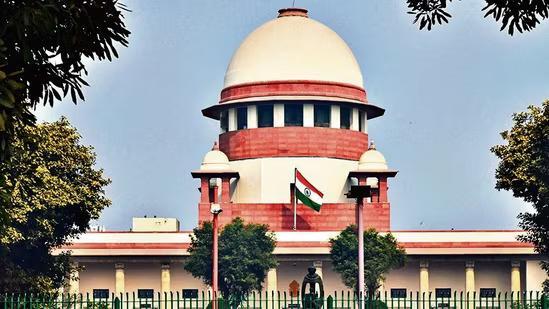
No Action against Owners of 10 & 15-yr-old Diesel & Petrol Vehicles for 4 Weeks: SC
In a significant development, the Supreme Court has ruled that no “coercive” action will be taken against the owners of over 10-year-old diesel and 15-year-old petrol vehicles in Delhi for a period of four weeks. The order was passed in response to an application filed by the Delhi government, which challenged the ban on the vehicles as a pollution control measure in the capital.
The Delhi government had approached the Supreme Court seeking a stay on the ban, which was imposed by the National Green Tribunal (NGT) in November 2018. The NGT had directed the Delhi government to implement a scheme to phase out vehicles older than 10 years in Delhi to reduce air pollution. The ban came into effect from May 13, 2020, and was expected to affect over 1.5 million vehicles in the city.
However, the Delhi government had moved the Supreme Court, arguing that the ban was arbitrary and would cause significant hardship to the owners of these vehicles. The government claimed that it would be difficult to implement the ban, especially during the ongoing COVID-19 pandemic, and that it would have a significant impact on the economy and employment.
The Supreme Court, in its order, has stayed the ban for a period of four weeks, during which no coercive action will be taken against the owners of over 10-year-old diesel and 15-year-old petrol vehicles in Delhi. The court has also directed the Delhi government to file a detailed affidavit explaining the scheme to phase out these vehicles and to provide a timeline for its implementation.
The court’s order is seen as a major relief to the owners of these vehicles, who were worried about the impact of the ban on their daily lives. Many of these vehicles are used for commercial purposes, such as transporting goods and passengers, and the ban would have caused significant inconvenience to the public.
The Delhi government, on the other hand, has welcomed the Supreme Court’s order, saying that it will allow the government to review the scheme and come up with a more effective plan to reduce air pollution in the city. The government has also announced that it will file a detailed affidavit in the Supreme Court explaining the scheme to phase out these vehicles and providing a timeline for its implementation.
The Supreme Court’s order has also been seen as a victory for the owners of these vehicles, who had been fighting against the ban. The Delhi High Court had earlier granted a temporary stay on the ban, but the NGT had subsequently lifted the stay and directed the Delhi government to implement the ban.
The ban on over 10-year-old diesel and 15-year-old petrol vehicles is part of a larger effort to reduce air pollution in Delhi. The city has been struggling with severe air pollution for several years, and the government has been implementing various measures to reduce the levels of pollutants in the air. The ban is expected to have a significant impact on the levels of particulate matter (PM) and nitrogen oxides (NOx) in the air, which are two of the main pollutants responsible for air pollution in Delhi.
The Supreme Court’s order is a significant development in the ongoing efforts to reduce air pollution in Delhi. While the ban on over 10-year-old diesel and 15-year-old petrol vehicles is an important step, it is also important to implement other measures to reduce air pollution in the city. These measures include improving public transportation, promoting the use of electric vehicles, and implementing stricter emission standards for vehicles.
In conclusion, the Supreme Court’s order staying the ban on over 10-year-old diesel and 15-year-old petrol vehicles in Delhi for a period of four weeks is a significant development in the ongoing efforts to reduce air pollution in the city. While the order provides relief to the owners of these vehicles, it is also important to implement other measures to reduce air pollution in Delhi and to make the city a cleaner and healthier place to live.






